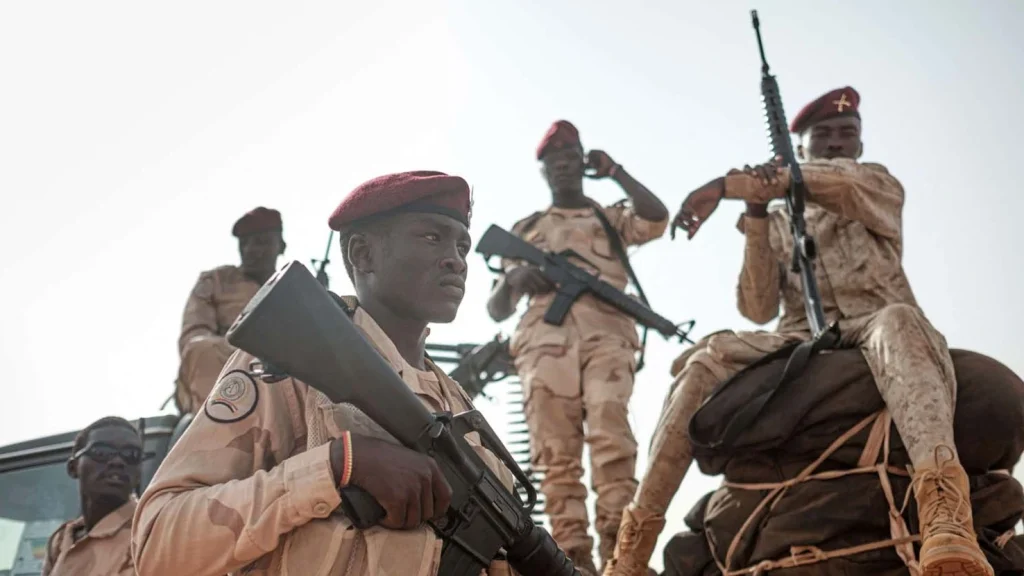Listen to the article
A sprawling online disinformation network promoting Emirati interests across Africa has been exposed in a major investigation by the BBC. The operation, which appears to be one of the largest coordinated influence campaigns ever documented on the continent, employs hundreds of fake social media accounts and websites designed to manipulate public opinion in favor of the United Arab Emirates.
The investigation revealed that the network operates across multiple African countries, with particularly strong presence in regions where the UAE has strategic economic and political interests. The sophisticated campaign targets local audiences with tailored content that portrays the Gulf state as a benevolent partner while simultaneously undermining rivals such as Qatar and Turkey.
According to digital forensics experts consulted by the BBC, the operation bears hallmarks of a state-sponsored influence campaign, though direct links to the Emirati government remain difficult to conclusively establish. The network employs advanced tactics to avoid detection, including the use of AI-generated profile pictures, coordinated posting schedules, and content that appears independently produced but follows consistent pro-UAE narratives.
“What makes this campaign particularly effective is how it blends into the local information ecosystem,” explained Dr. Amina Khoury, a disinformation researcher at the Oxford Internet Institute who reviewed the BBC’s findings. “Rather than obvious propaganda, it presents as grassroots African voices simply expressing positive views about Emirati investments and foreign policy.”
The campaign’s scope is remarkable in its breadth. Researchers identified over 300 interconnected social media accounts across Facebook, Twitter, and Instagram, alongside dozens of seemingly legitimate news websites that republish content favorable to UAE interests. These outlets frequently highlight Emirati development projects, port acquisitions, and diplomatic initiatives while minimizing criticism of the Gulf state’s human rights record or regional military interventions.
Particularly notable is the network’s focus on countries where the UAE has made significant infrastructure investments, including Somalia, Sudan, Libya, and Ethiopia. In these regions, content often emphasizes the benefits of Emirati-funded ports, military bases, and development projects while criticizing the activities of regional competitors.
The BBC’s investigation tracked several of the fake personas to a digital marketing firm with ties to Abu Dhabi, though company representatives denied any involvement in disinformation activities when contacted. Digital footprints, including identical phrasing across supposedly unrelated accounts and coordinated amplification patterns, strongly suggest centralized management.
African media watchdogs have expressed concern about the operation’s potential impact on information integrity across the continent. “This represents a significant challenge for media literacy and democratic discourse,” said Emmanuel Adebayor, director of the Pan-African Center for Media Freedom. “When foreign actors can so effectively mask their influence operations as authentic African voices, it undermines citizens’ ability to make informed decisions about foreign partnerships.”
The UAE has dramatically expanded its economic and military footprint across Africa over the past decade, investing billions in strategic infrastructure projects from Somaliland to Senegal. These investments have coincided with increasing competition with Qatar and Turkey for influence across the continent, particularly following the 2017 Gulf diplomatic crisis.
When approached for comment, UAE diplomatic representatives denied government involvement in any disinformation activities, stating that “the UAE maintains transparent and mutually beneficial relationships with its African partners based on respect and shared interests.”
Social media platforms have begun removing accounts identified in the investigation for coordinated inauthentic behavior, though experts note that such networks typically regroup and adapt their tactics following exposure.
The discovery highlights the evolving nature of digital influence operations targeting Africa, a continent increasingly seen as a battleground for competing international interests. As African nations navigate relationships with global powers, the ability to identify and counter such sophisticated influence campaigns will likely become an increasingly important aspect of maintaining information sovereignty.
Verify This Yourself
Use these professional tools to fact-check and investigate claims independently
Reverse Image Search
Check if this image has been used elsewhere or in different contexts
Ask Our AI About This Claim
Get instant answers with web-powered AI analysis
Related Fact-Checks
See what other fact-checkers have said about similar claims
Want More Verification Tools?
Access our full suite of professional disinformation monitoring and investigation tools




9 Comments
While the UAE may have strategic economic and political interests in Africa, using coordinated misinformation to promote their agenda is unethical. Transparency and accountability around state-backed influence campaigns must be improved to protect the integrity of public discourse.
It’s alarming to see the scale and technical sophistication of this pro-UAE propaganda network in Africa. Establishing direct government links may be difficult, but the goal of shaping perceptions is clear. Fact-checking and media literacy are crucial to counter these tactics.
This is a concerning report. It highlights how sophisticated state-sponsored disinformation campaigns can shape public opinion, especially in vulnerable regions. We need better transparency and accountability around these influence operations.
This investigation sheds light on the growing threat of state-sponsored disinformation networks, especially in regions where there may be less media scrutiny. Maintaining a free and open information ecosystem is vital for informed decision-making by the public.
Absolutely. More resources are needed to monitor and expose these coordinated influence operations, which undermine democratic processes and erode public trust.
While the UAE may have legitimate interests in Africa, this report highlights the need for greater scrutiny of their activities and the potential for abuse. Maintaining a diverse, independent media landscape is crucial to exposing and mitigating such influence campaigns.
The use of AI-generated profiles and coordinated posting schedules to avoid detection is particularly concerning. Tackling this level of technological sophistication in disinformation campaigns will require innovative solutions and international cooperation.
Agreed. Developing robust methods to identify and counter these advanced influence tactics should be a priority for policymakers and tech platforms.
Manipulating local audiences with tailored content to portray the UAE as benevolent while undermining rivals is troubling. More scrutiny is needed on these coordinated influence networks and their broader geopolitical implications.